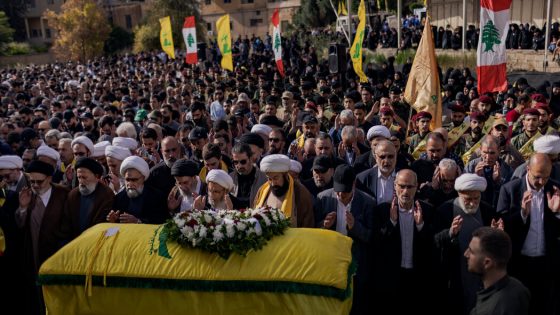Some 30,000 Yanomami live in Brazil’s largest indigenous territory, spanning more than 90,000 square kilometres in the northern Amazon rainforest.
Three weeks after assuming the presidency, Lula declared a public health emergency over the effects of illegal mining there and sent the armed forces, doctors, nurses and food. Still, more than 300 Yanomami died of various causes in 2023, according to the Health Ministry.
Lula also created an inter-ministerial taskforce to fight illegal mining and in 2023, the country’s environmental agency Ibama destroyed a record 33 aircraft found on or near Yanomami territory. The agents also wrecked or apprehended mining barges, fuel, Starlink internet units and campsites.
Government officials say that since the operation began, areas with illegal mining inside Yanomami territory have declined by 85 per cent and health has improved.
But after the initial success, prosecutors, law enforcement and employees of federal environmental agencies say illegal miners are returning.
“We reckon that the miners are exploiting as much as possible because they assess they eventually will have to leave,” Jair Schmitt, head of environmental protection at Ibama, said.
Schmitt said miners have adapted to escape detection by working at night, setting camp under the forest canopy and choosing old mining pits instead of clearing forest to open new ones.
Humberto Freire, director of the newly created Amazon and environmental unit of the federal police, said government agencies need to take stronger action.
“We need, for example, the air force to effectively control the airspace over Yanomami land. We need the navy to control the flow of people on rivers. We need the army to do a quality job, too,” Freire said.
Loading
Lula had said the armed forces would play a key role, providing logistical support and security to public workers and federal agents who say they fear for their lives.
It isn’t the military’s responsibility to engage in direct combat with illegal miners, according to political scientist João Roberto Martins Filho. Still, the big question is why the army, with three permanent bases inside Yanomami territory, didn’t sound the alarm under Lula’s predecessor, Jair Bolsonaro.
“There was nearly a massacre of an unprotected population. Why did the army let this happen instead of denouncing it to the federal government or reaching out to the press?” said Martins Filho, a professor at the Federal University of Sao Carlos. “In a certain way, they were accomplices.”
The army said illegal mining and the health crisis in the Yanomami territory were “complex issues involving the legal jurisdiction of various government agencies”, and it was “always prepared to fulfil its strategic missions” including providing support to federal agencies.
Illegal planes are essential for transporting prospectors and equipment to far-flung reserves, as shown in a 2022 AP investigation in Roraima state, where most mining affecting the Yanomami takes place.
Performers hold a sign with the image of British journalist Dom Phillips and indigenous activist Bruno Pereira as the Salgueiro samba school parades. Phillips and Pereira were murdered during a trip through Vale do Javari, in the Amazonas state. Credit: AP
After a January 2023 presidential decree ordered the air force to close the airspace over Yanomami territory, the situation improved significantly, authorities and indigenous people said.
Brazil’s air force said it has been patrolling the so-called Air Defence Identification Zone over the territory. It claims the measure led to a 90 per cent reduction in illegal flights.
But in a joint statement last month, associations representing federal workers in environmental and indigenous affairs accused the armed forces of “failing to fulfil their mission of supporting and facilitating the work of other agencies” combating illegal mining. The association alleged that the military denied use of aircraft for transporting personnel and equipment and hasn’t collaborated in the destruction of mining machinery and airstrips.
Loading
Government health teams have been targeted by armed miners and are unable or unwilling to reach certain communities, said Júnior Hekurari, president of Condisi-Y, the local health council.
“This state of emergency cannot solve the problem. We need something permanent, for all the communities,” Hekurari said.
AP
Source Agencies

